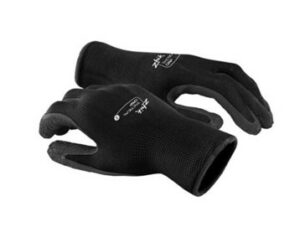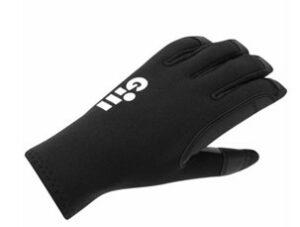What is Piscataqua Youth Sailing Association?
PYSA is a non-profit organization that partners with local schools to facilitate the ongoing growth of youth sailing in Maine and New Hampshire.
Which High Schools does PYSA currently support?
We currently support teams with Portsmouth High School, Traip Academy, Marshwood High School and St. Thomas Aquinas.
What will I learn?
Our seasons are 10 weeks long and cater to first time or experienced sailors. Based on your experience level, our coaches will guide you through the basics of small boat sailing all the way to competitive racing. Our sailors learn to sail and race confidently as part of a two person team in a variety of conditions.
Where will I sail?
Practice takes place at Kittery Point Yacht Club located at 328 Portsmouth Avenue, New Castle, NH 03854.
Carpooling or drop offs/pickups are mandatory as parking is limited. Your coaches will direct you to the correct parking location on the first day of practice. Please arrive in the athletic clothes you will be wearing as the club does not have changing facilities.
Our sailing area is just south of KPYC and is an ideal sheltered learning location. The sailboats are staged on a large floating dock in the center of this learning area.
When is the fall and spring sailing season?
Our fall season begins the last week of August and runs until the first week of November. The fall season is the best time for new sailors to join our team because water temperatures are warmer and winds are generally lighter.
Our spring season begins the last week of March and runs until the last week of May (usually ending before Memorial Day).
What are the sailing season costs?
New and returning athletes will be charged a registration fee and be expected to participate in an online fundraiser. For the spring season, a $75 dry suit rental is required. All sailors will need to have their own life jacket, gloves and footwear. For details, please attend our information meeting or email us directly.
What if I can’t make all of the high school practices?
Sometimes athletes and parents have scheduling conflicts with the practice times. We understand the challenge and understand if you need to miss a couple of practices. Frequent absences and no-shows are not permitted. Attendance will be considered when making selections for boat lineups and regattas.
What kind of weather cancels practice?
Plan on attending practice even if there is bad weather. There are many lessons we can learn on land. We will not sail if there is a threat of thunderstorms. Our coaches monitor weather conditions before leaving shore and watch for dangerous weather approaching. We do sail if there is good breeze, even if it is raining.
Will I get to compete in regattas?
Our team participates in both local and regional regattas. Saturday scrimmages between teammates offer valuable racing experience for everyone.
For traveling regattas, athletes are selected based on a combination of skill, practice performance, attendance, attitude, and team chemistry. Since regatta hosts have limited boat availability and usually permit only one team per organization, selection is highly competitive. Each team consists of four sailors, with two competing in the “A” Division and two in the “B” Division. The scores from both divisions are combined to determine the team’s overall score.
Athletes and parents are responsible for their own transportation to and from regattas
What do I wear for spring season?
Due to water temperatures, athletes will be required to wear a dry suit for the spring season. PYSA has rentals available that the athletes must take care of and return at the end of the season in the same condition
What do I wear for fall season?
Dry suits are not required for the fall season due to warmer water temperatures. The season will begin warm with athletes probably wearing shorts, athletic leggings and long sleeve shirts. As the weather turns colder this will transition to warmer waterproof layers such as spray tops, spray pants or rain shells. A thin wetsuit would also be appropriate if you have one.
What gear will I need for every season?
Athletes will need to have their own life jacket, gloves and footwear.
Gloves
For keeping hands warm, gripping wet lines and protecting your hands from friction. There are many glove styles appropriate for different weather conditions. Gloves should fit snug but not so snug that they cut off circulation when you make a fist.
Footwear
Closed toe shoes with a hard outsole appropriate for wading into water or walking on docks. Footwear made from neoprene will keep feet warm. Shoes will be worn over the foot of the dry suit in the spring so consider going up at least one shoe size. Old sneakers, dinghy boots or diving boots work as appropriate footwear.
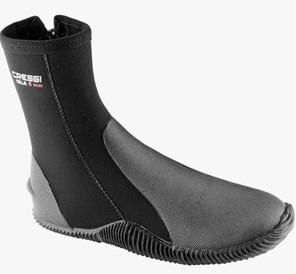
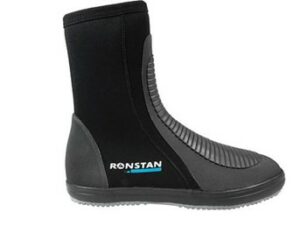
Life Jacket (PFD)
We suggest a short PFD designed for dinghy sailing or kayaking. The PFD should fit snugly and be rated for your weight. Dinghy PFDs are streamline and usually zip or buckle at the side. When fitting a PFD you should not be able to pull the shoulder straps of the lifejacket above your ears.
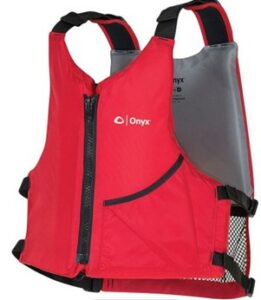
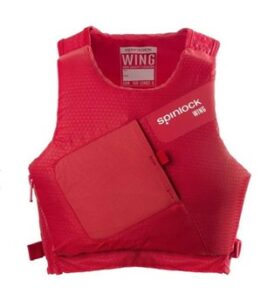
What other items do I need for practice and regattas?
- Warm athletic clothing and layers such as thermals, fleece, windbreakers or rain jackets. Sailing can be both cold and wet. Do not wear cotton or jeans.
- Towel and dry clothes in case you get wet
- A plastic reusable water bottle (no metal in the boat)
- Bailer
- Beanie or ball cap
- Socks (if wearing a drysuit)
- Neck Gaiter
- Sunglasses with retaining strap
- Duffel or backpack to keep your stuff in
- Sunscreen
Where can I buy sailing gear?
When searching for gear, it is helpful to look for items made for “dinghy sailing”. Popular brands are Gill, Zhik, Ronstan, Helly Hansen and Rooster.
More questions? Send us an email. We’ll get back to you shortly!
pysasailing@gmail.com

